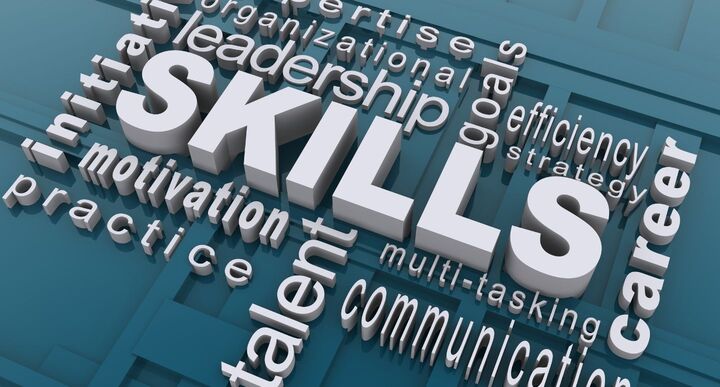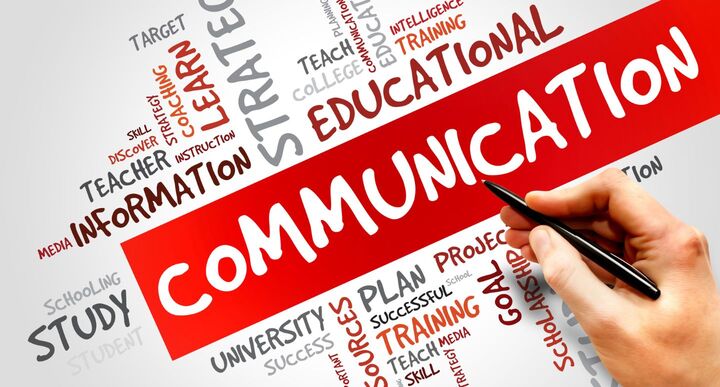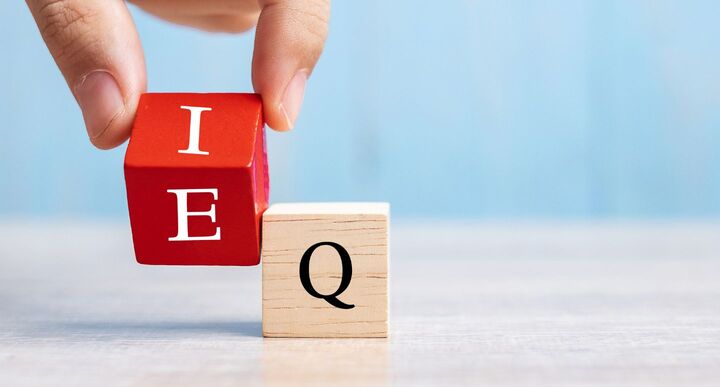The Essential Leadership Skills Every Leader Should Possess

Table of Contents
Beyond having a vital position within the achievement of an enterprise, leadership skills are the art of placing and advancing the direction of a network, team, or employer. Therefore, management capabilities are the cornerstone of leaders at all tiers, in an extensive range of areas, from business to social spheres, from education to politics. This article aims to examine the basic characteristics that enable leaders to be successful by discussing leadership skills.
The cause of this article is to comprehensively discuss management competencies, and emphasize the significance of every and manual leader in the system of growing those capabilities. First, know-how the distinction among leadership skills and management capabilities will form the idea of the concept of management. Next, we can recognize the position of effective verbal exchange skills and digital certificates in a pacesetter’s success. Since emotional intelligence is the important thing to getting ahead in leadership skills, the knowledge and application of this idea will also be examined substantially.
Leadership skills don’t just suggest giving orders and making decisions; additionally, it include effective verbal exchange, emotional intelligence, hassle-fixing abilities, and the ability to bond with your crew. By studying those talents, every leader can deal with challenges, motivate group individuals, and lead the business enterprise on a broader adventure of fulfillment.
The significance of management talents lies in the leader’s capacity to form and direct the arena around him. In this context, the complexity and flexibility of management talents a vital element that determines the achievement of leaders in present-day dynamic and aggressive environments.
Decision-making and problem-solving skills will be discussed to reveal how effective the leader can be in daily decisions and in times of crisis. We will explore how conflict resolution skills impact team dynamics as we evaluate the critical effects of trust and reputation on leader influence. This article aims to help leaders discover and develop their leadership skills potential by highlighting the versatility of leadership skills.
The Difference Between Leadership Skills and Management Skills

Leadership skills and management are two important concepts that are often confused but have different focuses. In this section, we will explore the key differences between leadership skills and management skills.
Definition of Leadership and Management Concepts
Leadership skills: Leadership skills is the process of sharing a vision, inspiring team members, and directing them toward a specific goal. Leaders often have the role of managing change, taking risks, and encouraging innovation.
Management: Management is the process of effectively planning, organizing, coordinating, and controlling resources. Managers generally have the responsibility to use available resources in the most effective way to achieve set goals.
Key Differences Between Leadership Skills and Management Skills
Vision and Inspiration: Leaders commit team members to a vision and encourage them to achieve that vision. Managers, on the other hand, are more focused on optimizing existing processes and running the business effectively.
Risk-Taking and Change Management: Leaders tend to be open to new opportunities and evaluate risks. Managers generally tend to maintain existing processes and minimize risks.
Human Relations and Team Management: Leaders can be adept at building strong relationships and increasing motivation among team members.
A Good Leader Must Also Be a Good Manager
Ideal leaders are not only visionary and inspirational but also have effective management skills. Achieving this balance is critical for a leader to successfully lead the organization.
In the real world, a leader needs to master both leadership skills and management skills in order to adapt to changing conditions and maintain success.
Communication Skills for Effective Leadership: Listening, Speaking, and More

Communication is a fundamental carrier in the world of leadership skills. A leader’s success depends on effective communication skills. In this section, we will focus on the skills leaders need for effective communication.
The Role of Communication in Leadership Skills
Communicating the Vision: A leader must communicate the vision he has set clearly and effectively. Good communication keeps team members focused on the common goal.
Increasing Motivation: Leaders must communicate effectively to keep motivation high. Positive feedback and encouragement can further motivate team members.
Strengthening Inter-Team Relationships: Good communication strengthens relationships between team members. This can improve performance by building collaboration and team spirit.
Effective Listening Skills
Empathy and Understanding: A good leader shows empathy to understand team members. Active listening in communication increases the ability to better understand and solve problems.
Getting Feedback: Leaders should be open to feedback from team members. This can contribute to the leader’s personal and professional development.
Strong Speaking Skills
Clear and Clear Expression: Leaders must express their thoughts clearly and communicate complex topics in understandable language.
Persuasive Ability: Effective leaders are strong at persuading others. Skills in making a good argument and defending decisions are important.
The Importance of Non-Verbal Communication
Body Language and Gestures: Leaders must convey their emotions and messages by using body language and gestures correctly. This contributes to deeper and more effective communication.
Eye Contact: A good leader must maintain strong eye contact when communicating. This can increase mutual trust.
Communication Obstacles and Solutions
Language Barriers: Cultural and language differences can make communication difficult. Leaders must develop various strategies to overcome these obstacles.
Unclear Communication: Ambiguity can lead to a lack of trust. Leaders can prevent such problems with open and transparent communication.
Effective leadership skills rely on strong communication skills. A good leader is skilled at communicating clearly, listening, speaking, and using non-verbal communication effectively. These skills help the leader build stronger bonds with his team and achieve common goals.
Emotional Intelligence and Leadership Skills: Understanding and Applying EQ

Leadership skills mean not only handling challenging tasks but also effectively managing interpersonal relationships. At this point, emotional intelligence performs a critical role in a frontrunner’s fulfillment. Emotional intelligence is defined as the potential to understand, recognize, manage feelings and interact with others, and it’s miles inevitable for a pacesetter to have those skills so that it will lead efficaciously.
A leader’s emotional intelligence consists of the capability to accurately verify his or her emotional state and the emotions of his or her team members. This allows a pacesetter with excessive emotional intelligence to carry out at an excessive level in developing advantageous painting surroundings, motivating team members, and handling challenges. Leaders with strong emotional intelligence can turn emotional challenges into opportunities.
The importance of emotional intelligence in management isn’t always confined to the chief himself but also affects the chief’s relationships with the human beings around him. Leaders reinforce intra-team relationships through knowledge of the emotional desires of crew members and drawing near those desires sensitively.
Empathy sticks out as a key element of a frontrunner’s emotional intelligence capabilities; due to the fact the leader can build belief and commitment by respecting and knowledge of team members’ views.
Emotional intelligence increases a leader’s potential to cope with stress and enables him to hold calm in times of disaster. This enables the leader to preserve emotional balance in choice-making methods and reduce the effects of bad emotions. In this context, emotional intelligence permits the chief to efficiently manage the emotional nation, inspire and improve the overall performance of the team.
This strong link between emotional intelligence and leadership skills calls for leaders to increase their capabilities in coping with no longer only responsibilities but also human beings. Emotional intelligence allows a leader to direct an organization not only with a strategic vision but also by building strong connections with people.
Therefore, leaders focusing on improving their emotional intelligence skills not only improves their own leadership skills potential but also enables them to manage their teams and organizations more effectively.
Decision-Making and Problem-Solving Skills for Leaders

5.1 Strategic Decision Making Processes
Vision and Goal Setting: Leaders must create a clear vision to guide their organization and set strategic goals to achieve that vision.
Risk Assessment: A good leader evaluates possible risks when making decisions and develops strategies against these risks.
5.2 Problem-Solving Steps
Problem Identification: Leaders must accurately define the problems they face. Getting to the root of the problem is important in finding effective solutions.
Analysis and Information Gathering: Data and information-gathering processes provide leaders with a solid foundation for understanding and solving problems.
Solution Development and Implementation: A good leader evaluates various solution options and selects and implements the most appropriate one. At the same time, it must effectively communicate the solution to the organization.
5.3 Effective Decision-Making Methods in Times of Crisis
Quick Response: In times of crisis, leaders must have the ability to make quick and effective decisions. A timely response can prevent the problem from escalating further.
Flexibility and Adaptability: Adapting quickly to changing conditions can help leaders manage crises more effectively.
5.4 Communicating Decisions and Team Participation
Openness and Communication: Open communication about decisions can help a leader build trust with his team and increase team members’ motivation.
Team Participation: Leaders should include team members in decision-making processes. This allows for the benefit of diverse perspectives and strengthening solutions.
5.5 Decision-Making Errors and Learning
Feedback and Evaluation: Good leaders constantly evaluate the decisions they make and receive feedback. This helps them improve their future decision-making.
Openness to Learning: Learning from mistakes and a continuous learning mentality contribute to the development of leaders.
Building Trust and Credibility as a Leader

Leadership skills are fundamentally built on trust and reputation. A good leader builds trust through open communication, consistent behavior, and determination. While trust expresses the confidence that team members have in their leader, reputation determines the leader’s influence within the organization by reflecting the total respect and value he has. Trust and credibility strengthen a leader’s ability to motivate his team, build collaboration, and meet challenges. By maintaining these core values, a leader can sustainably increase the success of his team.
Conflict Resolution Skills: Managing Disagreements with Grace

Conflict is an inevitable situation a leader may encounter. However, effective leaders have the skills to manage conflicts with grace and bring them to a positive resolution. In this section, we will discuss important steps for leaders to understand and develop conflict resolution skills.
Nature of Conflict and the Role of the Leader
Constructive Aspects of Conflict: Leaders should evaluate conflict not only as a problem but also in terms of encouraging the emergence of new ideas and innovation.
Leader’s Mediation Role: Leaders should facilitate communication between team members by taking on the role of a mediator to resolve the conflict.
Effective Conflict Resolution Strategies
Empathy and Understanding: Leaders must show empathy to understand what those on the conflict side are feeling. This can speed up the resolution process.
Open Communication: Talking and articulating issues openly is a critical step in the conflict resolution process. Leaders should ask effective questions and focus on listening to strengthen communication.
Conflict Management and Increasing Harmony Within the Team
Identifying Common Interests: Leaders should find the core issues underlying the conflict and highlight common interests between the parties.
Developing Communication Within the Team: A good communication environment enables conflicts to be expressed clearly and resolved effectively.
Decision Making and Implementation
Evaluating Solution Options: Leaders should evaluate various solution options and choose the most appropriate one.
Communication of the Decision and Team Participation: The solution should be effectively communicated to the team members and the team’s participation in the solution should be encouraged.
Post-Conflict Assessment and Learning
Feedback and Evaluation: Leaders should obtain feedback from parties after conflict and evaluate the effects of the resolution.
Openness to Learning: Lessons learned from conflicts contribute to the leader being better prepared for future conflict situations.
Concluison
Leadership skills are a critical factor for success in the modern business world. Leaders must have not only management abilities but also versatile skills such as effective communication, emotional intelligence, decision-making, and conflict resolution. In this article, we started by explaining the differences between leadership skills and management.
Then, we detailed the communication skills, the concept and applications of emotional intelligence, decision-making processes, and conflict-resolution skills that effective leaders must have. The points highlighted under each heading can help leaders lead their teams more effectively and lead their organizations to success. It should not be forgotten that leadership skills are a journey that requires constant development, and leaders must constantly strengthen and develop various skill sets.



